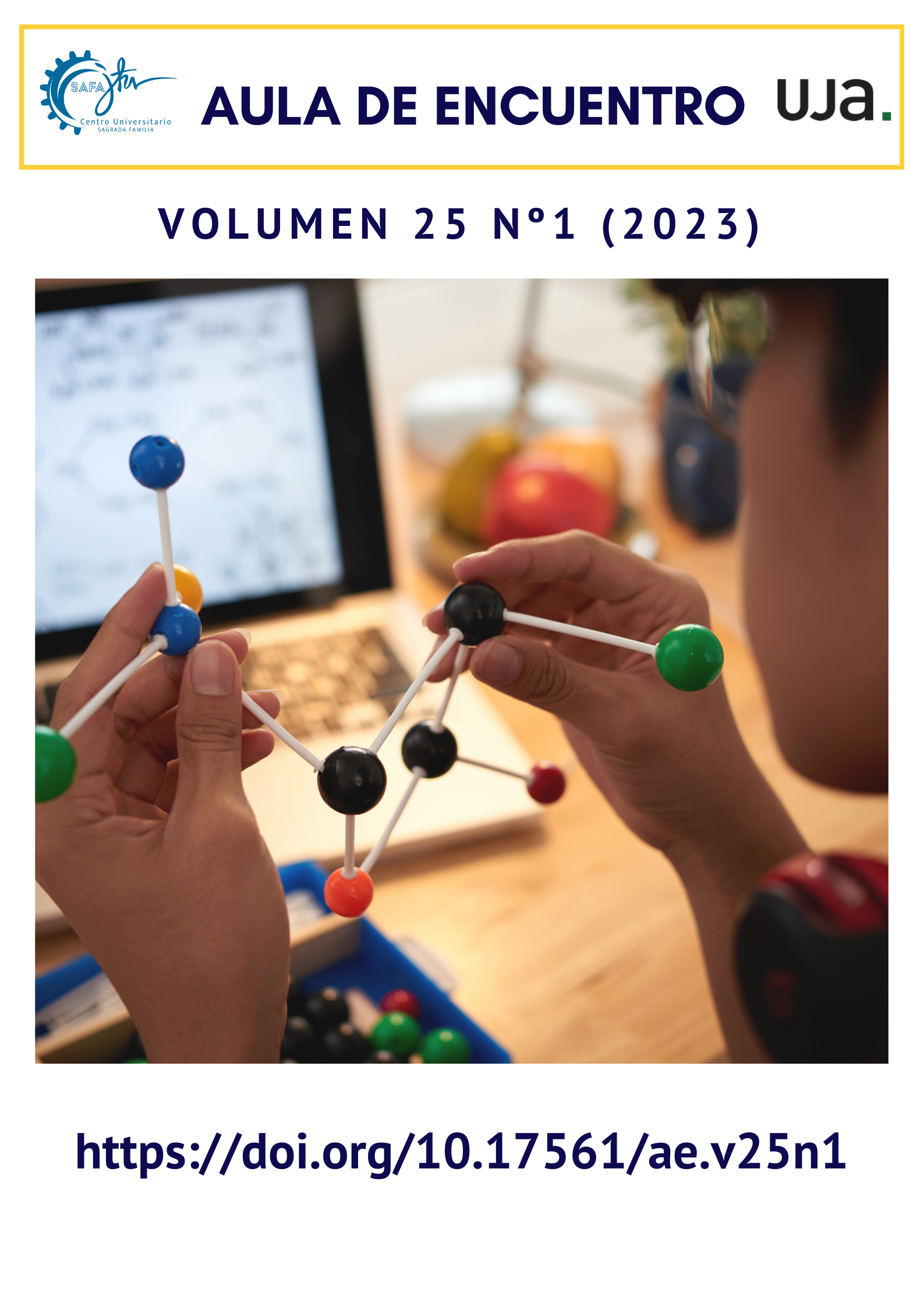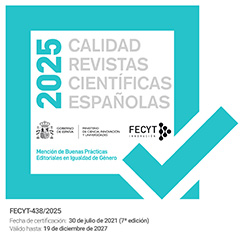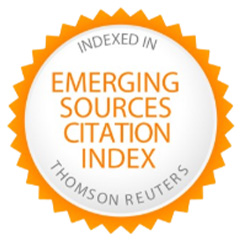Teading habits in Secondary education: Booktuber proposal
DOI:
https://doi.org/10.17561/ae.v25n1.7312Keywords:
Hábitos lectores, TIC, booktuber, lengua castellana y literatura, educación secundaria.Abstract
The objective of this experience has been to carry out an initial evaluation, through a questionnaire, to detect the needs and reading habits of students in the third year of ESO in a center in the province of Seville. The results of the questionnaire make explicit the lack of reading habits, although the students state that when they read they do it for pleasure and that if they had more free time they would read more; which has led us to design, develop and evaluate a reading practice called booktuber in the subject of Spanish Language and Literature to encourage reading habits. The students have made a video review as booktubers to analyze the book Marianela by Pérez Galdós; allowing this reading practice to increase their motivation, exposure capacity and memory behind the camera. Through the final satisfaction questionnaire it has been detected that this practice is more attractive to them than the written exam they carry out of the compulsory readings.
Downloads
References
Álvarez-Álvarez, C., & García-Eguren, M. (2013). Escuela, museo, familia, lectura y valores: Proyecto de educación en valores para la Red de Museos Etnográficos de Asturias. Íber. Didáctica de las Ciencias Sociales, Geografía e Historia, 73(1), 73–80. Recuperado de https://www.grao.com/es/producto/escuela-museo-familia-lectura-y-valores
Chen, D. & MacLeod, G. (2021). Effectiveness of digital tools to support pupils’ reading in secondary school: A systematised review. International Journal of Mobile and Blended Learning, 13(2), 1–16. https://doi.org/10.4018/IJMBL.2021040101
Dans I., & Muñoz, P. C. (2016). Las redes sociales como motivación para el aprendizaje: opinión de los adolescentes. INNOEDUCA. International Journal of Technology and Educational Innovation, 2(1), 20–28. Recuperado de https://dx.doi.org/10.20548/innoeduca.2016.v2i1.1041
Dar, B. A., Ahmad, S., & Lone, J. A. (2019). Reading Habits and Attitudes of Undergraduate Students: A Gender Based Comparative Study of Government Degree College (Boys) and Government Degree College for Women, Anantnag (J&K). Library Philosophy and Practice, 2351, 1–13. Retrieved from https://digitalcommons.unl.edu/libphilprac/2351/
Del Moral-Barrigüete, C., & Molina-García, M. J. (2018). Diseño y validación de un cuestionario sobre hábitos lectores en futuros maestros durante su etapa preuniversitaria. Revista de Educación de la Universidad de Granada, 25, 51–79. Recuperado de https://doi.org/10.30827/reugra.v25i0.100
Duque-Aristizábal, C. P., Ortiz-Rayo, K. D., Sossa-Gómez, E. C., & Bastidas-Velázquez, F. A. (2013). La lectura como valor para la construcción del lector competente. Infancias Imágenes, 11(1), 107–113. Recuperado de https://dialnet.unirioja.es/servlet/articulo?codigo=4817193
Federación de Gremios de Editores de España [FGEE] (2022). Hábitos de lectura y compra de libros en España|2020. Madrid: Ministerio de Cultura y Deporte. Recuperado de https://www.federacioneditores.org/lectura-y-compra-de-libros-2021.pdf
García-Canclini, N. (2015). Hacia una antropología de los lectores (pp. 1–35). Barcelona: Ariel.
García-Roca, A. (2019). Jóvenes escritores en la red: un estudio exploratorio sobre perfiles de Wattpad. Ocnos, 18(3), 18–28 Recuperado de https://doi.org/10.18239/ocnos_2019.18.3.1968
Gil-Flores, J. (2011). Hábitos lectores y competencias básicas en el alumnado de Educación Secundaria Obligatoria. Educación XXI, 14(1), 117–134. Recuperado de https://doi.org/10.5944/educxx1.14.1.274
Hu, J. & Yu, R. (2021). The effects of ICT-based social media on adolescents’ digital reading performance: A longitudinal study of PISA 2009, PISA 2012, PISA 2015 and PISA 2018. Computers & Education, 175, 1–20. https://doi.org/10.1016/j.compedu.2021.104342
Kalantzis, M.; Cope. B., & Zapata, G. C. (2019). Las alfabetizaciones múltiples: teoría y práctica. Barcelona: Octaedro. Recuperado de https://octaedro.com/wp-content/uploads/2020/01/10465.pdf
Kovac, M., & van der Weel, A. (2018). Lectura en papel vs lectura en pantalla. CERLALC Centro Regional para el Fomento del Libro en América Latina y El Caribe. Madrid: UNESCO. Recuperado de https://cerlalc.org/wp-content/uploads/2020/04/Cerlalc_Publicaciones_Dosier_Pantalla_vs_Papel_042020.pdf
Lluch, G., & Acosta, M. (2012). Conversaciones sobre lecturas en la Web 2.0: el caso de Laura Gallego. Análisis discursivo de conversaciones virtuales entre adolescentes. En J. Díaz Armas (Ed.), Lecturas para el nuevo siglo: formación receptora y lector hipertextual (pp. 37–52). La Laguna: Servicio de Publicaciones de la Universidad de La Laguna.
Lluch, G. (2014). Jóvenes y adolescentes hablan de lectura en la red. Ocnos, 11 7–20. Recuperado de https://doi.org/10.18239/ocnos_2014.11.01
Martos, E. (2013) Lectura y patrimonio cultural en la era digital. Revista digital Platero, 193, 3–24. Recuperado de https://dokumen.tips/documents/platero-193.html?page=1
Mol, S., & Jolles, J. (2014). Reading enjoyment amongst non-leisure readers can affect achievement in secondary school. Frontiers in Psychology, 5, Retrieved from https://doi.org/10.3389/fpsyg.2014.01214
Morales-Sánchez, M. I., Martín-Villareal, J. P., & Coca-Ramírez, F. (2021). Booktubers in the classroom: teaching experiences on the dynamics of online literary criticism. Ocnos, 20(2), 68–79. Retrieved from https://doi.org/10.18239/ocnos_021.20.2.2426
Paladines-Paredes, L. V., & Aliagas, C. (2021). Videoreseñas de booktubers como espacios de mediación literaria. Ocnos, 20(1), 38–49. Recuperado de https://doi.org/10.18239/ocnos_2021.20.1.2489
Paladines-Paredes, L. V., & Margallo, A. M. (2020). Los canales booktuber como espacio de socialización de prácticas lectoras juveniles. Ocnos, 19(1), 55–67. Recuperado de https://doi.org/10.18239/ocnos_2020.19.1.1975
Prensky, M. (2011). Enseñar a nativos digitales. Madrid: SM.
Rajendran, V. & Yunus, M. M. (2021). Interactive Learning via Digital Storytelling in Teaching and Learning. International Journal of Education & Literacy Studies, 9(3), 78–84. https://dx.doi.org/10.7575/aiac.ijels.v.9n.3p.78
Rovira-Collado, J. (2017). Booktrailer y Booktuber como herramientas LIJ 2.0 para el desarrollo del hábito lector. Investigaciones Sobre Lectura, 7, 55–72. Recuperado de https://revistas.uma.es/index.php/revistaISL/article/view/10981
Sibón-Macarro, T.G., y Picado Sánchez, M. J. (2021). Animación a la lectura a través de reseñas de booktubers (pp. 612–628), en A. Vizcaino-Verdú, M. Bonilla-del-Río, & N. Ibarra Rius, Cultura participativa, fandom y narrativas emergentes en redes sociales. Dykinson S.L.
Soldevilla Elduayen, C. (2019). Los hábitos lectores en Educación Secundaria y Bachillerato. [Trabajo de Fin de Master]. La Laguna: Universidad de La Laguna. Recuperado de https://riull.ull.es/xmlui/bitstream/handle/915/16990/Los%20habitos%20lectores%20en%20Educacion%20Secundaria%20y%20Bachillerato.pdf?sequence=1
Tomasena, J. M. (2021). ¿Quiénes son los booktubers? Características de los videoblogueros literarios en lengua española. Ocnos, 20(2), 43–55. Recuperado de https://doi.org/10.18239/ocnos_2021.20.2.2466
Torralba Miralles, G. (2018). Los futuros maestros se convierten en booktubers. Una práctica de fomento lector en el Grado en Maestro de Educación Primaria. Lenguaje y Textos, 47, 13–24. Recuperado de https://doi.org/10.4995/lyt.2018.7986
Published
Issue
Section
License
Copyright (c) 2023 Cristina De-Cecilia-Rodríguez, Margarita R. Rodríguez-Gallego, ROSARIO ORDÓÑEZ-SIERRA, Soledad J. Domene-Martos

This work is licensed under a Creative Commons Attribution 4.0 International License.
The authors who publish in this journal agree with the following terms:
The authors retain the copyright and guarantee the journal the right to be the first publication of the work as well as a Creative Commons Attribution License that allows others to share the work with an acknowledgment of the authorship of the work and the initial publication in this magazine.
Authors may separately establish additional agreements for the non-exclusive distribution of the version of the work published in the journal (for example, place it in an institutional repository or publish it in a book), with an acknowledgment of its initial publication in this journal.
Authors are allowed and encouraged to disseminate their work electronically (for example, in institutional repositories or on their own website) before and during the submission process, as it may result in productive exchanges, as well as a more early and major published papers (See The Effect of Open Access).















